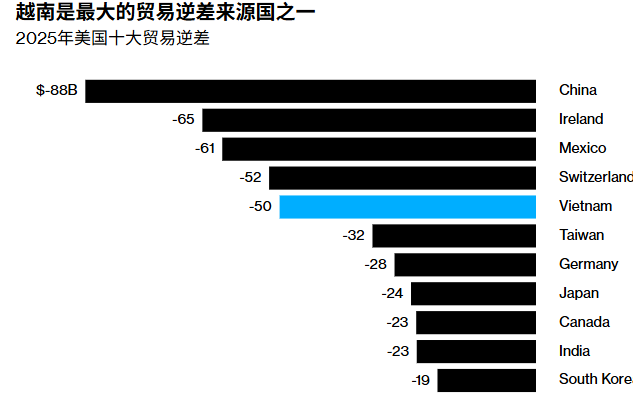US President Donald Trump said that after weeks of close diplomatic consultations, he has reached a trade deal with Vietnam and will not impose higher tariffs on Vietnamese imports by next week’s deadline.
Trump said on social media on Wednesday that the US will impose a 20% tariff on goods exported from Vietnam to the US and a 40% tariff on any goods that are seen as being transshipped through Vietnam. Trump said that Vietnam has agreed to eliminate all tariffs on US imports.
Trump wrote: “In other words, they will ‘open their markets to the United States’, which means we will be able to sell our products to Vietnam at zero tariffs.” The president said he had consulted with General Secretary of the Communist Party of Vietnam Nguyen Phu Trong and ultimately reached this agreement.
The Vietnamese Ministry of Foreign Affairs said in a statement that Trump promised in the leaders’ phone call on Wednesday to continue cooperation “to solve problems affecting bilateral trade relations”, and Su Lin suggested that the US recognize Vietnam’s “market economy status and lift export restrictions on certain high-tech products”.
Although Trump disclosed the general framework of the agreement, the White House has not released any list of terms or issued any formal announcement to codify the agreement into law. Some details may still be in the process of being worked out. The United States and the United Kingdom first announced the trade agreement in early May, but it was not until mid-June that Trump signed an executive order to implement it. Even so, key details were left unresolved for future handling.
The deal with Vietnam will be the third announced after those with the UK and China. Trading partners are racing to reach agreements with the US before the July 9 deadline. In early April, Trump first introduced so-called “reciprocal tariffs”, imposing a 46% tariff on Vietnam. The tariff has been imposed on dozens of countries but was later reduced to 10% to allow for negotiations.

According to Bloomberg Economics, the deal could trigger retaliatory measures from China.
Rana Foroohar of Bloomberg wrote in a research report: “Beijing has made it clear that it will respond to deals that come at China’s expense, and the decision to agree to impose higher tariffs on goods seen as ‘transshipped’ through Vietnam may fall into this category.”
Vietnam poses a particular challenge to the Trump administration because some of the president’s senior advisers view Vietnam as a strategic partner in countering China in Asia. At the same time, Vietnam’s export products have become necessities for American consumers.
In recent years, sales by Southeast Asian countries to the US market have soared, partly because manufacturers have shifted production from China to the US. China is a major supplier of textiles and sportswear, and has factories for companies such as Nike Inc., Gap Inc. and Lululemon Athletica Inc. in the US.
According to data from the US Census Bureau, Vietnam was the sixth-largest supplier of imports to the United States last year, exporting goods worth nearly 137 billion US dollars to the US. Vietnam’s trade surplus with the US ranks third globally, only after China and Mexico. Due to enterprises’ desire to ship goods as soon as possible before the deadline, Vietnam’s shipments increased by 35% in May.
After Trump’s tweet, the S&P 500 index rose, and the share prices of furniture stocks and clothing manufacturers all increased. ON Holding, Nike and Lululemon all hit new highs during the trading session.
Read more: S&P 500 rebounds on US-Vietnam deal, tech stocks rise: Market summary
Some US officials hope to adjust tariffs on Vietnam and other Southeast Asian countries to ensure that their rates are much lower than those on China, thereby encouraging production to shift away from China.
The 40% higher tariff rate announced on Wednesday will be imposed on goods regarded as “transit”, that is, components from China and other countries that are transshipped through Vietnam or undergo only minimal final assembly before being exported to the United States.


